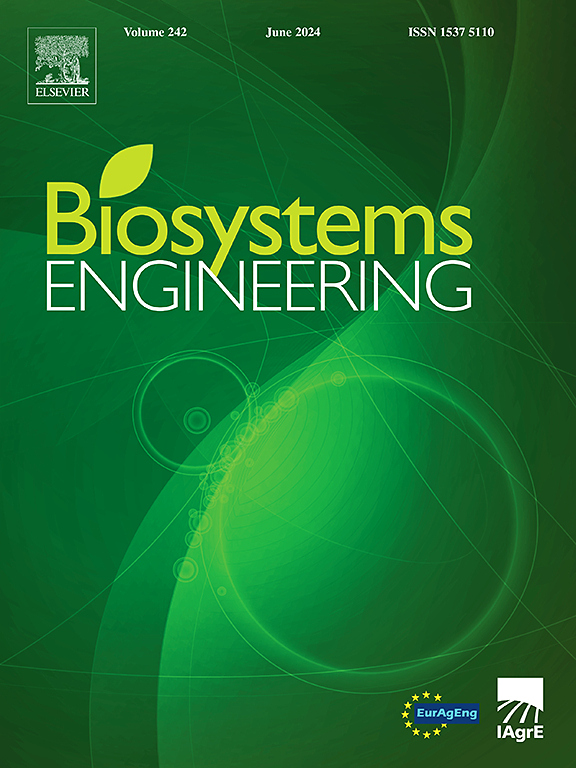An omnidirectional dynamic levelling system with less tuning parameters for mountainous tea plantations
IF 4.4
1区 农林科学
Q1 AGRICULTURAL ENGINEERING
引用次数: 0
Abstract
Increasing market and labour costs arouse an urgent need to develop automatic mechanised tea picking equipment over mountainous tea plantation area. To address the poor operational stability of existing machines, this paper proposes a new design of an omnidirectional dynamic four-point levelling platform and the levelling control algorithms based on four-point levelling and central immobile levelling method. A prototype is built to test the static and dynamic levelling performance on a simulated mountainous terrain. Different from other conventional four-point levelling platforms, the rotary motion is added to this platform and the number of control units is reduced to reduce the difficulty of manoeuvring. These developments result in a damage-free feature when the rotation or inclination motion is beyond the normal manoeuvre range. The test results of the prototype showed that the inclination error of the platform was controlled at 1.1°–1.9° in 2–2.5 s during the static levelling test on a mountainous terrain with a slope of 15°. The dynamic levelling was tested on a mountainous terrain with varied slopes between 10° and 20° and the inclination error range of the platform was 1.7°–2.2°. The field tests confirmed that the levelling system can achieve omnidirectional dynamic levelling in the case of tea picking operations in mountainous areas with slopes below 20°.

求助全文
约1分钟内获得全文
求助全文
来源期刊

Biosystems Engineering
农林科学-农业工程
CiteScore
10.60
自引率
7.80%
发文量
239
审稿时长
53 days
期刊介绍:
Biosystems Engineering publishes research in engineering and the physical sciences that represent advances in understanding or modelling of the performance of biological systems for sustainable developments in land use and the environment, agriculture and amenity, bioproduction processes and the food chain. The subject matter of the journal reflects the wide range and interdisciplinary nature of research in engineering for biological systems.
 求助内容:
求助内容: 应助结果提醒方式:
应助结果提醒方式:


